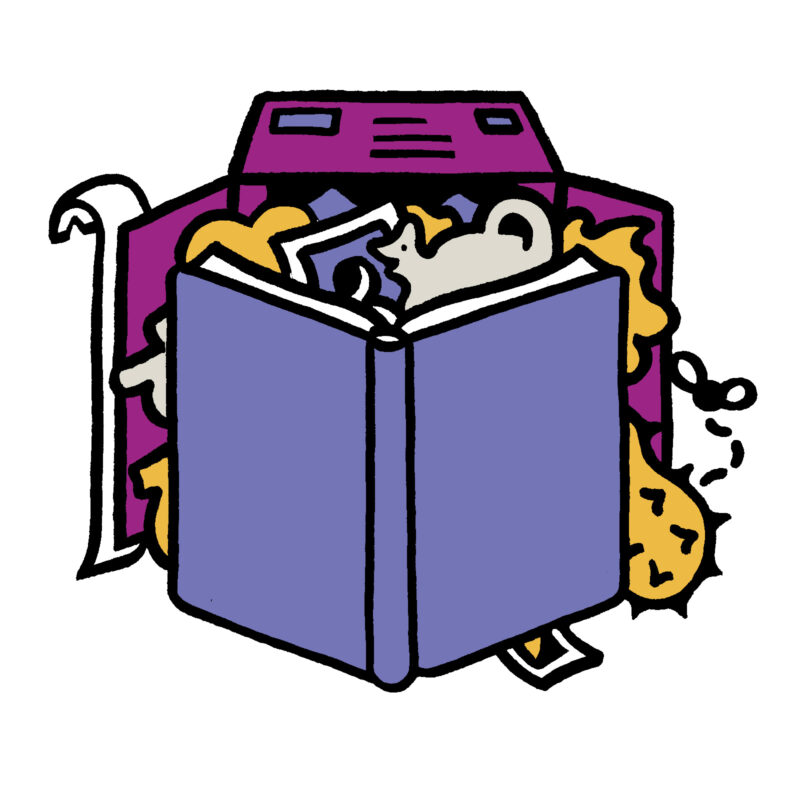The Delivery, a new novel by Colombian writer Margarita García Robayo, presents the world of an expatriate writer, a Colombian in Buenos Aires who dreams of finishing a novel. Our unnamed protagonist juggles an intractable lover, a ghostly mother, a disturbed cat, and a slew of disgruntled neighbors. She is a writer at odds with her materials, like “a carpenter who is allergic to sawdust,” at once totally enamored with language and certain that “everything told is damaged.” To make ends meet, she works apathetically as a copywriter, crafting marketing language for a company that produces humanely raised beef. As the days and weeks pass, a slew of packages arrives from her sister back in Colombia, filling her apartment to the brim with objects of varying significance. In the meantime, for a good portion of the book, she waits.
In the meantime—perhaps the true setting of Robayo’s novel, more than Buenos Aires, is the meantime, the time of expectancy and of ideation—Robayo’s protagonist is waiting for a family secret, for a lover’s call, for a friend’s response, for life-shifting news. Waiting, she eddies inside wonder. The novel illustrates a thinking mind, a mind met with delay, a mind that is merciless and ever turning inward. Such minds tend to fold in on themselves: “Inaugurating a body or a house is to commence its deterioration… deterioration, I think now, is a superior state of matter because it means something has flourished in it. Only that which has given fruit can rot.” These sentences, and the idea they house, express one motor of Robayo’s craft: she is a writer as fascinated by rot as by ripeness, and especially by the clouded border between the two.
The secret aspiration of any expatriate is to be past-less. Crossing a border—into a new grammar, a new cuisine, a new flora, a new backdrop for living—creates a crease in a life. Expatriates, unlike immigrants, hope such a crease will allow for a clean tear. Robayo’s protagonist is no different: she wants to tuck her family, and her life before Argentina, out of sight. At the same time, she is painfully aware of how our histories create us: “When someone is born,” she determines, “they debut old features, they come with a burden of past that will always be greater than their future.” At another moment, she admits: “I have a collection of childhood accidents stored up in my body.” Inside the music of Robayo’s prose, one encounters an argument about the vigor of personal history, its relentless capacity to emboss the present.
“Our ability to fool ourselves is infinite,” writes Robayo at another moment. Reading this novel, I thought often about the common wish for everything in life to attain significance. Each love, each glance, the smell of eucalyptus, the printed inscription on a delivered package. Are we fooling ourselves to think this? If all the details in our lives eventually achieve meaning, nothing can be discarded; nothing can be overlooked. Meaning (of all kinds) produces grief, but only meaninglessness produces despair.
I believe, above all else, that The Delivery is a book about meaninglessness, about splintered meanings, a book about misinterpretation and the abyss. To Robayo’s eye, we will never close the misunderstandings between one another: “Every person is a nucleus bordered by gaps of incomprehension. Even those who feel the closest to us are separated by that thin but deep edge.” At the close of the book, Robayo departs from the reader mid-breath, neglecting to deliver to us some culminating event that would corral all the book’s various dramas into one unified shape. We are left in awe of this novel’s intellectual exercise, and with a furious hope that such an exercise might return to its own starting place, forming a perfect circle. But “a return, almost always, is a failure,” Robayo reminds us. Chekhov’s gun remains unfired. The circle stays open. A life, arbitrarily, carries on.
Publisher: Charco Press Page count:169 Price: $16.95 Key quote: “Parents are the peephole you look through to spy on your childhood.” Shelve next to: Magda Szabó, Marieke Lucas Rijneveld, Jennifer Croft Unscientifically calculated reading time: Two or three hazy morning reading sessions, when you wake up early but the person beside you in bed is still asleep





